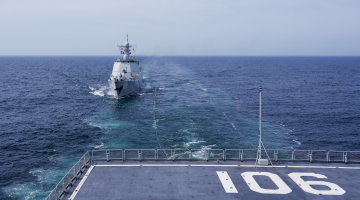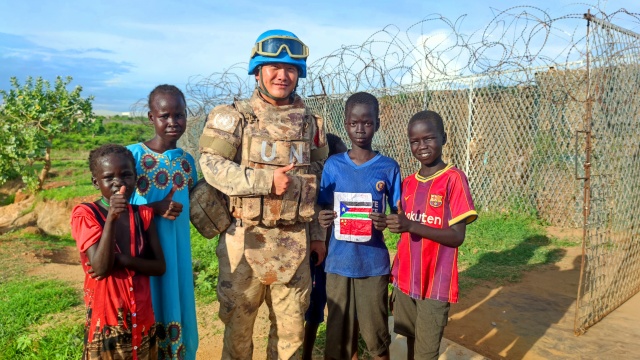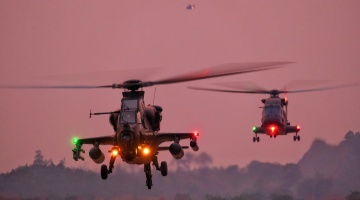By Wu Minwen
Indian Prime Minister Narendra Modi started his 3-day visit to Australia on May 23 and the bilateral defense cooperation was an important part of the agenda. In recent years, the relationship between India and Australia has obviously improved and their defense cooperation has been increasingly strengthened. As India and Australia are both members of the QUAD, Modi's visit attracted wide attention.
All relationships between any two countries are strengthened or weakened based on their actual specific interest appeals. Although both Australia and India used to be British colonies, they did not develop a particularly close or intimate relationship in the past. Since the beginning of this century, based on their realistic interests such as the interest appeals beyond the QUAD, India's dream of a global leading country, and a stronger need for military cooperation, the two sides are getting closer and closer.
However, it should be noted that the complicated factors including the US' Indo-Pacific Strategy, the defense strategies and the security demands of India and Australia, among others, will affect the prospects of the India-Australia defense cooperation development.
First, it is difficult for India to get rid of the restraint of the QUAD. India has been flip-flopping to maximize its national interests. It is a member of the BRICS countries representing emerging economies, a member of the Shanghai Cooperation Organization and a QUAD member implying group confrontation at the same time. In fact, when India gains diversified identities, it weakens its identity characteristics. India is neither a member of the core alliance AUKUS nor a member of the US, Japan and ROK Alliance actively promoted by the US.
The Indo-Pacific Strategy is dominated by the US. The cooperation between India and Australia is pushed by their domestic interest appeals as well as the Indo-Pacific Strategy and matchmaking of the US. However, the restraint of the Indo-Pacific Strategy on the two countries and the bilateral relationship will not be relaxed.
Meanwhile, there is an obvious difference in the enthusiasm for the relationship between India and Australia. Modi said when he revisited Australia and accepted a media interview, that he wants to take the relationship with Australia to the "next level", including closer defense and security ties. However, this could not cover the difference in the enthusiasm for the relationship between the two countries.
The difference in the economic development level between the two countries is huge, and insufficient complementarity is the main reason why their trade value has been low for a long term though the two countries have vigorously promoted the development of their relationship. India has pursued an independent strategy and adopted a nonalignment policy for a long time. Actually, it adheres to pragmatism and opportunism. Australia, however, always follows the US in the foreign relation aspect and it has bound itself to the chariot of the US. Therefore, though they have claimed to develop their cooperation in the Indian Ocean and the South Pacific regions, they always compete against and are suspicious and jealous of each other.
In addition, it is difficult to eliminate the difference in culture between the two countries in the short term. Australia has adopted the notorious “White Australia policy” for a long time. Being hostile to Indians residing in Australia, it restricts the development of Indians residing in Australia and adopts a strict examination and review system in the absorption of Indian skilled migrants. The policy has even affected the competition of the diplomatic influence of the two countries on Fiji, an island country in the Southwest Pacific. Although the Australian government has definitely expressed that it is going to eliminate such influence, it is difficult to eliminate the prejudicedeeply rooted in the thinking of Australian political elites and ordinary people in a short time.
(The author is from College of Information and Communication, PLA National University of Defense Technology)
Editor's note: Originally published on zqb.cyol.com, this article is translated from Chinese into English and edited by the China Military Online. The information and opinions in this article do not necessarily reflect the views of eng.chinamil.com.cn.









